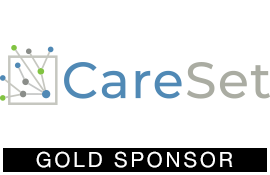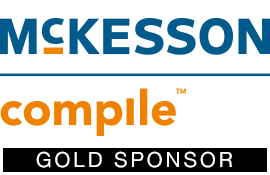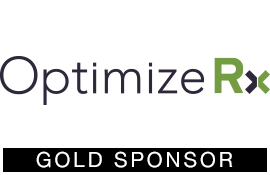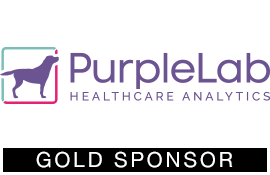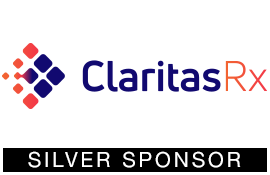Best Podium Presentations

- Machine Learning Models to Determine Drivers of Duration of Therapy and Persistency
Jukti Kumar Kalitz, Pfizer Pharmaceuticals and Julieta Aguilar, Pfizer Pharmaceuticals - Driving a Successful Oncology Drug Launch Through Predictive and Data-Driven Omnichannel Orchestration
Sarah Donner, Mirati Therapeutics and David Laros, Beghou Consulting - Predictive Modeling of Triple Negative Breast Cancer (TNBC) Patients, Cancer Stages and Surgery Status Through AI/ML Algorithms
Chang Zeng, Merck and Laney Quach, Merck
Best Poster Presentations

- 1st: Step-By-Step Omnichannel Deployment Strategy in Life Sciences
Inderpreet Kambo, IQVIA - 2nd: (tied): 340B Program Impacts: A Snowflake-Enhanced Machine Learning Approach to Pharmacy Dynamics
Shanyue Zeng, IQVIA Inc. - 2nd: (tied): Enabling Analytics-Ready Data Products for AI/Gen AI
Pushpendra Arora, Merck; Jaan Nashin Singh, Axtria; Catherine Shen, Merck - 3rd: A Comparison of Deep Learning Sequential Modeling Vs Current Tabular Tree-Based Approaches on Open Claims Classification Problems
Brett Harder, IQVIA; Virajdatt Kohir, IQVIA
|
SUNDAY, MAY 5, 2024 |
|
|---|---|
|
02:00 PM - 05:00 PM |
Harnessing Generative AI to Navigate Life Science Insights A hands-on, practical workshop on how can Generative AI can effectively improve the process of insights generation in the life sciences industry.
Speakers: Steve Laux, Vice President, Analytics & Head of Generative AI, Trinity; Patrick Waring, Director, New Products & Strategy, Trinity; Matt Giambrone, Senior Director, Product Strategy, Trinity |
|
03:00 PM - 05:00 PM |
From Data to Decisions: Leveraging Domain-Trained GenAI for Casual Understanding with ExplAIn Join our hands-on workshop and unlock the power of WhizAI’s ExplAIn capability in decoding, deciding, and driving growth in pharmaceutical commercial analytics. Learn to spot trends with anomaly detection, uncover data's 'why' with precision, visualize clear connections with knowledge graphs, and transform data into compelling narratives.
Speaker: Bijal Karande, VP of Partnerships & Pre-Sales, WhizAI Companies today have a mountain of patient data, but are they truly finding value in it? Join Axtria for an in-depth workshop discussing why this remains an elusive goal for some companies, and how to change that. We'll go hands-on with connected ecosystems and solving data silo problems along with identifying fit-for-purpose data for rare diseases and next-gen therapies. Note: Only for Life Sciences companies and Axtria partners. Speakers: Vishal Singal, Global Patient COE Lead, Axtria; Devesh Verma, Principal, Decision Science, Axtria |
|
06:00 PM - 09:00 PM |
Welcome Reception |
|
MONDAY, MAY 6, 2024 |
|
|---|---|
|
07:30 AM - 08:30 AM |
Breakfast |
|
08:30 AM - 08:45 AM |
Welcome & Opening Remarks |
|
08:45 AM - 09:45 AM |
Keynote Presentation: Next Generation Analytics More information coming soon! Speaker: Xingchu Liu, Pfizer Pharmaceuticals |
|
09:45 AM - 10:15 AM |
Break and Vendor Fair |
|
10:20 AM - 11:10 AM |
General Session 1: A Human-Centered Design Approach to GenAI Applications The Medical Affairs team of Amgen’s Rare Disease BU wanted a better way to learn from and work with dense scientific publications. Our GenAI tool simplifies the life of technical medical professionals who spend significant efforts to provide scientific and medical information about the company's products to healthcare professionals, researchers, and other stakeholders. The tool supports teams in faster and better quality of knowledge dissemination to engage with external stakeholders, to understand the latest developments in research from medical conferences, to gain insights faster, providing medical education and training, and support medical publications and communications. While, most companies have been embarking on the GenAI discovery process, the focus is often on the technology and tools, rather than how the end user will benefit. Amgen, IA Collaborative, and Trinity Life Sciences have partnered together to develop an application that embodies both human-centered design and state-of-the-art use of GenAI. We believe that without fully embracing both components of the tool, GenAI will not reach its full potential within the life sciences community. Speakers: Karl Svensson, Amgen; Nabha Subramanya, Trinity Life Sciences |
|
11:10 AM - 12:00 PM |
In the last five years, the pharmaceutical advertising landscape has dramatically changed due to COVID and economic shifts, moving from healthcare professional promotion to direct-to-consumer advertising. With an annual advertising budget of $12B, the objective is to outperform competitors by comprehending and directing the consumer journey. We'll delve into a case study to understand the business purpose, project approach, and methodologies for building our machine learning models, including strategies for future-proofing the complex use of medical claims data in modeling. We'll share our model's performance, uncovering new ways to identify interactions between significant features and directional influencers, and share some unexpected discoveries. Lastly, we'll discuss our team's collaborative approach and how we used our insights to shape a compelling narrative for omnichannel consumer and healthcare professional promotion. Get ready for an insightful journey! Speakers: Karin Hayes, OptimizeRx; Scott Hull, Regeneron; Karen Lazan, Regeneron |
|
12:00 PM - 01:00 PM |
Lunch and Vendor Fair |
|
01:10 PM - 01:40 PM |
Breakout 1A: Machine Learning Models to Determine Drivers of Duration of Therapy and Persistency Treatment persistence and duration of therapy are two metrics of significant importance for medications that are used to treat chronic conditions or cancer. In this presentation we compare the performance of classical and machine learning models that explain the impact of explanatory factors like demographics, disease state information and comorbidities on these two metrics. Speaker: Julieta Aguilar, Pfizer Pharmaceuticals; Jukti Kumar Kalita, Pfizer Pharmaceuticals Breakout 1B: Extending Promotional Mix Modeling with Decision Science Planning sales and marketing spend across brands and channels can pose a complex challenge for manufacturers, who must accommodate the variety of perspectives from stakeholders across finance, marketing, brand, and analytics teams. We discuss an approach used by a leading global biopharma to supplement and enhance current marketing mix models with decision support tools that transparently inform investment decisions. Though marketing mix models are a powerful approach, they are limited because they are inherently tied to historical financial data and do not explain how broader “out-of-sample” factors such as imminent competitive entry, lifecycle stage, patient access or headroom for growth impact a brand or channel’s relative investment attractiveness. In addition, when using marketing mix models, different stakeholders may have different opinions on what each brand is “solving for” beyond just a near term ROI. This requires a transparent, interpretable model that links key assumptions and marketing mix results to a wide range of potential investment scenarios – but with explicit connections between inputs and outputs, and sensitivities for decisionmakers to use in finalizing budgets. Speakers: Kevin Coltin, Deloitte Consulting; Shubham Kumar, Deloitte Consulting LLP; Kush Mathur, Pfizer |
|
01:45 PM - 02:15 PM |
Breakout 2A: Leveraging Data and Machine Learning to Enable Launch Success Launch success is elusive – only 1 in 10 marketed products are profitable. Therefore, it is imperative that commercial leaders be nimble and capable of quickly identifying actions and strategy shifts to drive adoption and revenue. Analytics teams are the quarterbacks of the launch, ensuring cross-functional collaboration and equipping the leaders of different teams, like contracting, pricing, sales, brand, and marketing, with the data necessary to find a path to success. We will demonstrate how action-driven pre-launch and post-launch reporting frameworks and incorporating machine learning enable actionable insights that improve commercial strategy and execution. Action-driven pre-launch frameworks help analytics teams identify potential adoption drivers, barriers, and early adopters, which inform key messages, launch expectations, and customer valuation. Post-launch frameworks and machine learning models enable quicker decisions for refining commercial strategies. We can tangibly guide a path to launch success by leveraging data-backed insights into the impact of promotional activities, purchasing and prescribing catalysts, geographic performance, and likely future adopters. This presentation will show how Axtria and Amgen collaborated to leverage data to drive the adoption of launch products. Speaker: Evan Struck, Axtria, Inc.; Abhishek Sawant, Amgen, Inc. Breakout 2B: Using Large Foundational Models to Mine Insights for the Treatment of Prostate Cancer More information coming soon! Speaker: Prakash Karaka, Chryselys; Suzanne Marzziotti, Chryselys; Gary Fu, Novartis |
|
02:20 PM - 02:45 PM |
Break and Vendor Fair |
|
02:50 PM - 03:20 PM |
Breakout 3A: Enhancing Field Force Efficiency with Generative AI Virtual Assistants In the life sciences sector, field forces are crucial for facilitating patient access to therapies and providing healthcare professionals (HCPs) with essential medical information. However, they face significant process-driven and logistical challenges, notably in resolving queries efficiently. The traditional support model, reliant on support teams, is becoming increasingly inefficient due to its time-consuming nature, reliance on limited resources, and inconsistency in query resolution. In this presentation, Astellas and Indegene will dive into the revolutionary role of generative AI in redefining support for field force. We will share insights on how GenAI capabilities can improve not only the efficacy and efficiency of filed force but also help deliver personalized HCP interactions. Speakers: Nitin Raizada, Indegene; Maria Robles, Astellas Breakout 3B: Establishing a Promotion Strategy by Leveraging Cross-Indication Synergy The interdependence of closely related elements frequently gives rise to synergy, an outcome observed when exploring the dynamic connections across various promotion channels and indications. Our discernment reveals that the promotion of one indication can notably enhance the sales performance of another, showcasing the potential for mutually reinforcing effects. By incorporating insights derived from this synergy study into promotional strategies, an opportunity arises to orchestrate the efficient allocation of resources. This not only facilitates targeted outreach to meet projections but also enables a judicious economization of resources, thereby reducing costs for the company. The culmination of this portfolio study, leveraging the synergy factor across two indications, yields a meticulously calculated promotion cost that aligns with achieving forecasted outcomes. This approach not only ensures reasonable expenditure but also emphasizes strategic resource allocation. In conclusion, the integrated and synergistic promotional strategy offers a balanced and cost-effective means to navigate the promotional landscape for both indications over the specified three-year period. Speakers: Yalcin Baltali, Novartis; Wei Huang, Novartis; Hemant Kumar, Novartis |
|
03:25 PM - 04:10 PM |
In the dynamic realm of marketing strategy, traditional segmentation uncovers consumer / HCP profiles but often fails to elucidate the reasons behind their decisions. This talk introduces a novel approach that bridges the gap between static market segmentation and dynamic consumer behavior analysis. Our method transcends simple classification of customers into groups, such as 'loyalists' or 'dabblers,' by examining the causality behind healthcare professional (HCP) purchasing patterns. Integrating market segmentation with causal inference, we offer an explainable and substantial framework for marketing strategists. We will showcase how this approach not only captures the fluidity of customer behaviors but also directs targeted marketing strategies with predictive precision. Attendees will gain knowledge on optimizing resource distribution and increasing the effectiveness of marketing campaigns by understanding the subtleties of consumer behavior. We will explian how our novel method, iterative causal segmentation, can optimize marketing efforts, translating insights into potent strategies that resonate with each customer segment. This method represents more than just a conceptual fusion; it marks progress toward adaptive, efficient, and ethically sound marketing, especially pertinent to the pharmaceutical industry. Speaker: Kaihua Ding, AstraZeneca |
|
04:10 PM - 04:30 PM |
Annual Membership Meeting |
|
04:20 PM - 05:20 PM |
Poster Session and Reception |
|
05:00 PM - 06:00 PM |
Pfizer Manufacturer Happy Hour |
|
05:30 PM - 06:30 PM |
Axtria, Trinity and WhizAI Focus Groups |
|
06:45 PM - 10:00 PM |
Offsite Event - Denver Art Museum |
|
TUESDAY, MAY 7, 2024 |
|
|---|---|
|
07:30 AM - 08:30 AM |
Breakfast |
|
08:30 AM - 08:45 AM |
Day 2 Welcome & Lifetime Achievement Award |
|
08:45 AM - 09:45 AM |
Panel: Future of GenAI in Pharma More information coming soon! Panelists: Suman Giri, Pfizer; Emily Lewis, UCB Biopharma; Michele Maier, Boehringer-Ingelheim, Inc. Steven Sbar, Novartis; Moderator: Cindie Dilley |
|
09:45 AM - 10:00 AM |
Break and Vendor Fair |
|
10:05 AM - 10:35 AM |
This presentation discusses the balancing act between art and science when setting up a global marketing mix measurement and optimization process in a multinational life sciences corporation. The speakers will share their experience of setting up measurement and optimization processes that include:
This presentation will include case studies and learnings from our implementations of global marketing mix measurement processes across multiple life sciences corporations. The speakers will invite audience participation that increases understanding of the sensitive balance between the art and science of global marketing mix. Speakers: Devesh Verma, Axtria; Nuray Yurt, Merck |
|
10:35 AM - 11:05 AM |
General Session 5: Digital Attribution and Scenario Planning in the Pharmaceutical Space Digital Attribution involves measuring performance at the subchannel and execution level, encompassing factors like audience, tactic, partner, platform, ad type, campaign, creative, and placement. It's a method that optimizes pharmaceutical marketing by using site visits as a key metric, aligning with industry practices. This model is calibrated with Marketing Mix results to establish a single source of truth across the marketing ecosystem, yielding execution-level ROI metrics and enhancing analytical capabilities. Additionally, Scenario Planning refines budget optimization at granular levels within each channel. Combining Digital Attribution and Scenario Planning enhances marketing strategy with a data-driven approach to budget allocation. This innovative approach emphasizes tailored pharmaceutical marketing, site visits as a metric, calibration to a marketing mix, and advanced scenario planning enhancements, offering a comprehensive strategy for optimization. Speakers: Alice Harmon, Merkle; Olympia Mantsios, Dentsu Health; Amit Pandit, Insmed |
|
11:10 AM - 11:40 AM |
In recent years several biosimilars have entered the US and global market. Biosimilars face several challenges that can impact their adoption and success in the market such as lower share of voice compared to biologics, patient and physician confidence in efficacy, regulatory and contracting hurdles, and interchangeability. Leveraging IPM.ai’s (part of Real Chemistry) integrated claims, mastered payer database, social determinants of health (SDOH) and social listening capabilities, we will explore a few core hypotheses that pose as barriers of biosimilar uptake and ways in which biosimilar manufacturers can overcome these barriers, using the Humira market as a benchmark. In addition to tracking utilization trends, we will determine which patient and physician segments are most or least likely to adopt biosimilars compared to Humira, and to what extent external factors such as marketing share of voice and payer contracting have on adoption. Biosimilar manufacturers must understand the complex and interconnected potential barriers to uptake for a successful launch of their brand. Most importantly, being able to act on this information is what will lead to greater utilization of these therapies, increasing demand, and ideally resulting in reduced costs. Speakers: Devon Grochowski, IPM.ai; Shweta Nanda, IPM.ai; Travis Zuroske, IPM.ai Improving our understanding of the dynamics of rare and ultra-rare diseases is of vital importance. Better knowledge of factors and market dynamics that potentially impact adoption of rare and ultra-rare disease treatments can help inform public policy, regulatory processes, foster effective drug development in currently untreated conditions, and improve commercial attractiveness for pharmaceutical companies targeting these conditions. This paper proposes a framework and methodology to address the challenges. Speakers: Ashwin Anand, FORIAN Inc; Jerry Rosenblatt, Rosenblatt Life Sciences; Rhys Rosenberg, Rosenblatt Life Sciences |
|
11:45 AM - 12:15 PM |
Breakout 5A: Speech-to-Text Enabled Field Reporting for Pharma In the field reporting realm, pharmaceutical sales representatives are often inundated with data, requiring prompt access to pertinent dashboards and insights for informed decision-making during field visits. However, current solutions are hindered by manual navigation through dashboards and reports, which prove time-consuming and impractical for representatives who spend up to 40% of their day driving. This presentation introduces a large language model (LLM)-based, voice-powered field representative solution. It enables instant decision-making, ensures accessibility for all representatives, saves time through streamlined processes, and enhances efficiency, allowing reps to focus on relationship-building and seizing opportunities. Our approach integrates technology with a profound understanding of pharmaceutical sales dynamics, ensuring simplicity and empowerment. Sales queries are processed using speech-to-text algorithms and LLM interactions, with responses delivered audibly through text-to-speech. This solution comprehends contextual nuances, seamlessly integrates with field reporting dashboards, and provides rapid, clear insights, allowing representatives to make informed decisions on the move. Our solution enhances decision-making and sales productivity by empowering sales representatives with instant access to essential information, streamlining targeting, and facilitating proactive field management through AI-driven voice capabilities. This ultimately leads to more effective interactions with healthcare providers and increased sales success. Speakers: Rajesh Choudhary, Axtria; Jaan Nashin Singh, Axtria Breakout 5B: Revolutionizing Commercial & Medical Engagement Tactics Leveraging Novel Data Sources Enhancing Commercial and Medical engagements with providers and patients via coordinated Field (Sales Rep, Clinical/Nurse educators, MSLs, KAMs and other customer facing roles) + Digital by leveraging novel data-sources in the industry. Understanding the entire journey through data-exploration, acquisition, ingestion, execution and tangible value measurement of data and capabilities. Speakers: Tanmoy Bose, ZS Associates; Love Shah, ZS Associates |
|
12:20 PM - 01:20 PM |
Break and Vendor Fair Women in Analytics Luncheon |
|
01:30 PM - 02:00 PM |
Pharma companies' customers expect tailored, relevant, and timely communications and interactions. Companies that fail to deliver on this front will fall behind in our increasingly competitive environment. The key to achieving new levels of customer centricity is omnichannel orchestration. Mirati Therapeutics (a Bristol Myers Squibb company) built a comprehensive omnichannel capability using technology, processes and people. The company charted a course that other pharma companies can follow, using predictive analytics to find appropriate patients and their associated HCPs and HCOs, better engage customers, improve launch readiness, effectively translate data and insights into execution, and drive sales. Sarah Donner, omnichannel marketing and field force effectiveness lead at Mirati, and David Laros, partner at Beghou Consulting, will detail how Mirati successfully executed its customer-centric vision. They will:
Speakers: Sarah Donner, Mirati Therapeutics; David Laros, Beghou Consulting Breakout 6B: Data Strategy for RLT The evolving approach to data strategy now emphasizes the need for a focused strategy tailored to the complexity of various brand dimensions within RLT. This discussion will encompass an exploration of brand dimensions, macro trends, challenges in RLT data, methods for addressing data gaps, and the development of data solutions. Speakers: Gunjan Aggarwal, Novartis; Brian Garino, Novartis |
|
02:05 PM - 02:35 PM |
Diabetes management poses a significant challenge to the healthcare system due to its chronic nature and the high risk of complications leading to additional comorbidities, hospital admissions, and readmissions. Digital therapeutics offer an innovative approach to disease management, potentially impacting healthcare resource utilization positively. Dario Diabetes Solution (DDS) is a non-prescriptive mobile application linked to a blood glucose meter that tracks physiological parameters in real time, aiming to offer a personalized management plan for diabetes patients. Despite the potential for positive impacts to health outcomes among diabetes patients using digital therapeutics such as DDS, specific evidence demonstrating in clinical utility remains sparse. This talk highlights a retrospective study that involved an integrated approach of DDS and standard of care. Ultimately, the study showed a positive impact on health outcomes within the diabetes patient population. Speaker: Alison Edwards, Symphony Health Breakout 7B: Claim-based Multiple Sclerosis Patient Segmentation: From ICD to Disease Progression Multiple sclerosis has been classified according to distinct clinical phenotypes, yet recent research suggests that its clinical course should be perceived as an evolving continuum. This session covers a methodology for estimating the population of multiple sclerosis patients who exhibit clinically evident progression based on claim data. The work demonstrates the feasibility of estimating the patient population with disease progression with claim data. Speaker: Zheng Liu, Novartis; Lauren Tian, Novartis |
|
02:35 PM - 03:00 PM |
Break and Vendor Fair |
|
03:10 PM - 04:00 PM |
An innovative approach combining multiple claims data sets at the patient level to track radioligand therapeutic (RLT) referral patients at the HCO level. Speakers: Anna Makarova, Chryselys; Wei Pan, Novartis |
|
04:00 PM - 05:00 PM |
Happy Hour |
|
04:15 PM - 05:00 PM |
CareSet Focus Group |
|
05:30 PM - 06:15 PM |
Beghou, McKesson Compile and PurpleLab Focus Groups |
|
06:30 PM - 07:15 PM |
Genpact Focus Group |
|
WEDNESDAY, MAY 8, 2024 |
|
|---|---|
|
07:30 AM - 08:30 AM |
Breakfast |
|
08:30 AM - 08:45 AM |
Final Day Announcements |
|
08:45 AM - 09:30 AM |
General Session 7: Enabling Transparent AI from Black Box Models More information coming soon! Speaker: Ambika Rana, Gilead; Rajesh Choudhary, Axtria |
|
09:30 AM - 10:15 AM |
Chimeric Antigen Receptor T-cell (CAR-T) therapy has demonstrated profound effects in the treatment of patients with blood cancers like ALL,CLL, DLBCL, MCL, and MM, even those people were in quite advanced stage and where other available treatments failed. However, with robust growth of CAR-T therapy in recent years to exceed $26B market, limited visibility of CAR-T treatment on claims data has posed big challenges on fully understanding the landscape of the market. Identifying patients for this therapy remains a significant challenge. Predictive analytics and Artificial Intelligence/Machine Learning (AI/ML) models can potentially augment clinical judgement and identifying candidates for CAR-T therapy. In our case, we aim to develop advanced model to reactively identify “hidden” CAR-T patients and integrate into hematologic cancer market sizing report to achieve a more holistic view of the real world market. Speakers: Li Zhou, IQVIA, Inc; Roger Saadeh, IQVIA, Inc |
|
10:15 AM - 10:30 AM |
Break |
|
10:35 AM - 11:05 AM |
Track 8A: Riding the Adoption Wave to Long-Term Brand Success While many factors affect the adoption of new pharmaceutical products among medical practitioners, physician networks play a very important role in driving both the rate of penetration and peak share of newly introduced treatment options. A longitudinal analysis of medical claims data shows that future adoption is strongly affected by the influence of earlier adopters within the same ‘community of practice’ (CoP). This effect is observed soon after the first early adopters emerge and lasts for 4 years and beyond. Furthermore, the analysis revealed that not only adoption rates, but also the level of utilization (i.e., patient share) is significantly higher among prescribers in communities with a higher number of early adopters. There is an opportunity and a significant upside for pharma companies to adapt their early launch analytics and promotional strategies to take advantage of this effect to drive long term brand success. This session will highlight some of the methodologies to identify prescriber networks, illustrate the impact of peer influence, and discuss several applications for this type of analysis. Speakers: Markus Hauser, MD, Enginologi, Inc; Cytokinetics, Inc.; Christian Neckermann, Cogent HC, Inc. Track 8B: Taking the Fast Lane: How Hyper-Automated AI Accelerates the Life Sciences Value Chain The major challenge life sciences companies face is managing the ever-increasing volume of complex data streams. These data streams are crucial for operations across the value chain and require a structured data management approach. Without such an approach, it becomes overwhelmingly tedious for companies to process data swiftly enough to derive meaningful and timely insights needed to gain competitive edge. In this presentation, Novartis and Indegene will delve into the transformative power of hyper-automated AI in addressing this challenge. We will share a comprehensive blueprint that highlights how life sciences companies can build an integrated ecosystem leveraging advanced technologies such as AI/ML algorithms, Robotic Process Automation, Natural Language Processing, Natural Language Query, and Machine Learning Operations to accelerate the speed of data transformation and generation of insights and recommendations. Speakers: Vikas Mahajan, Indegene; Ravi Shankar, Novartis |
|
11:10 AM - 11:40 AM |
Track 9A: A Journey to Success in Commercially Launching a Digital Therapy Drug In the not-so distant past, treating a disease with mere pieces of software seemed like a science ficton tale. However, in the year 2018, this fiction became a reality when first prescription based digital therapeutic drug (reSET) was launched for the treatment of substance use disorder. Digital therapeutics (DTx) are a category of digital health solutions that use software-based interventions to prevent, manage, or treat medical conditions. They can be used as standalone treatments or in combination with traditional therapies, such as medications or counselling. Speakers: Sathyan Kallamparambil, Genpact; Anuj Sharma, Genpact Creating accurate and consistent forecasts across various geographic levels is crucial, especially in the pharmaceutical industry where medications have limited shelf life and prediction errors can have significant impacts. A hierarchical model has been developed to address this challenge, enabling simultaneous predictions at individual, territorial, state, and national levels while ensuring consistency by considering outputs from each level. This model overcomes the issue of integrating different models efficiently and optimizes predictions for both accuracy and consistency by employing a tree-based multi-output regression model with custom loss functions tailored to specific customer problems. The approach involves creating individual models for each level, enhancing their performance based on unique trends and correlations, and then integrating these insights into a unified Hierarchical Time Series (HTS) model. This method ensures consistent predictions across different geographical segments by considering regional trends in the learning phase, offering a superior solution to forecasting challenges in the pharmaceutical industry. Speakers: Matthieu Buot de l'Epine, ODAIA Intelligence; Pouyan Jahangiri, Director of Data Science and Machine Learning, ODAIA Intelligence |
|
11:50 AM - 12:35 PM |
TNBC data reporting is complex due to lack of diagnosis codes and unavailability of HER2 & HR biomarker testing results in claims data to identify TNBC. This coupled with low capture of surgical procedure codes and lack of treatment proxies for patient stage made it challenging to categorize patient subgroups. These data challenges hindered the in-depth understanding of TNBC patient subgroups, their journey, and treatment opportunities. We developed artificial intelligence &machine learning (AI/ML) algorithms to identify TNBC patients and predict their cancer stages and surgery status to enable accurate mapping of the patient pathway to ensure patients get the treatments they need at the right time. Speakers: Chang Zeng, Merck; Laney Quach, Merck |
|
12:25 PM - 01:00 PM |
Conference Wrap-Up and Prize Giveaways |
|
POSTERS |
|
|---|---|
|
340B Program Impact: A Snowflake-Enhanced Machine Learning Approach to Pharmacy Dynamics |
|
|
A Comparison of Deep Learning Sequential Modeling vs Tabular Tree-based Approaches On Medical Claims For Patient Outcome Classification Problems |
|
|
An Automated KOL Analytic Engine Powered by Large Language Models and Graph Machine Learning to Enrich HCP Profiles with Scientific Data |
|
|
Analyze and Predict Telehealth Use Leveraging Machine Learning Models |
|
|
Assessing the Impact of Payer Coverage Decisions: The Power of Integrating Patient Utilization and Market Access Data |
|
|
Assessing Unmeasured Confounding Using Negative Control Outcomes |
|
|
Boosting Brand Utilization Through Multi Faceted Predictive Analytics |
|
|
Deploying Generative AI to Gauge HCP Message Preference Based On Customer Responses |
|
|
Effective Inventory Management for New Drug Launch |
|
|
Enabling Analytics Ready Data Products for AIGen AI |
|
|
Enabling Transparent AI from Black Box Models |
|
|
Enhancing Demand Forecasting in Pharmaceuticals with AI/ML: A Transfer Learning Approach with Deep Learning |
|
|
Enhancing Healthcare Marketing Through Comprehensive Analysis of Healthcare Professionals' Behavior and Preferences |
|
|
Enhancing Marketing Mix Capabilities to Address Industry Trends and Support Better Business Decisions |
|
|
Enhancing Patient Selection in Clinical Trials with Advanced AI/ML Algorithms |
|
|
GenAI to Unlock RWE Potential |
|
|
GenAI Tool for Robust Regulatory Intelligence |
|
|
Generative AI for Clinical Trial Recruitment and Protocol Optimization |
|
|
Health Equity: A Data-driven Approach to Uncover Bias and Increase Equity in Healthcare |
|
|
Healthcare Market Data & Insights for Research-Ready Analysis at the Speed of Business |
|
|
Identifying Untapped Opportunities for Brand Performance by Assessing Gaps in Ideal Patient Prescribing Situations |
|
|
Improving Data Quality: Patient Identifier Resolution for More Complete Patient Journeys |
|
|
Imputing SDOH Information on Pharmacy Claims |
|
|
Incorporating Risk in Early stage Demand Research and Forecasting A Machine Learning-Approach |
|
|
Issues and Approaches in Automated Territory Alignment Optimization |
|
|
Leveraging Isolation Forest for Anomalous Plan Detection in Pharmaceutical Rebate Data |
|
|
LLMOps: Pioneering the Future of Large Language Model Deployment and Management |
|
|
MLOps: Unlocking the Potential of Machine Learning Operations |
|
|
Modern Data Strategy as the Foundation of Gen AI Readiness |
|
|
Next Gen Customer Engagement A Forward looking Solution for an Elevated Customer Experience |
|
|
Optimizing Multichannel Customer Engagement to Help a Rare Disease Brand Break Through |
|
|
Optimizing Salesforce Sizing for Life Sciences Organizations |
|
|
Patient Cloning for Assessing Dynamic Treatment Protocols: A Novel Approach for Observational Data Analysis Using Real-World Data (RWD) |
|
|
Patient Finder Plus: Comprehensive Solution for Multi-Disease Patient Discovery |
|
|
Prediction in Claims Databases for Epidemiological Research |
|
|
Predictive Alerts of Therapy Discontinuation Risk in Oncology: Enhancing Personalized Care and Treatment Adherence |
|
|
Prescription Re-attribution for Accurate Incentive Compensation and Field Deployment in the Immunology Market |
|
|
Primary and Secondary Data Integration: Deeper Holistic Insights to Inform Brand Strategies |
|
|
Quantifying The Impact of Social Determinants of Health on Patient Treatment and Disease Management within the Diabetes Market |
|
|
Single Channel Optimization: Building Blocks for Omnichannel Success |
|
|
Step by Step Omnichannel Deployment Strategy in Life Sciences |
|
|
TheM3SC Product Launch Framework Commercial Guidance for Pharmaceutical Manufacturers |
|
|
Track How Your HCPs are Moving Down the Brand Adoption Funnel with Engagement Scores |
|
|
Uncovering Hidden Local and Regional KOLs and Their Peer Networks in Underdiagnosed Markets Through Disease Detection and Link Prediction |
|
|
Unlocking Insights Leveraging Generative AI for Qualitative Survey Analysis |
|
|
Unlocking the Rx Abandonment Mystery with New Data to Help More Patients Get on Brand |
|
|
Using Real Time Omnichannel Promotion Strategies to Improve Patient Enrollment in Clinical Trials |
|
|
Utilizing Patient Electronic Medical Records to Transform Clinical Trials |
|
|
Will Conversational Assistants Take Over Dashboards |
|






